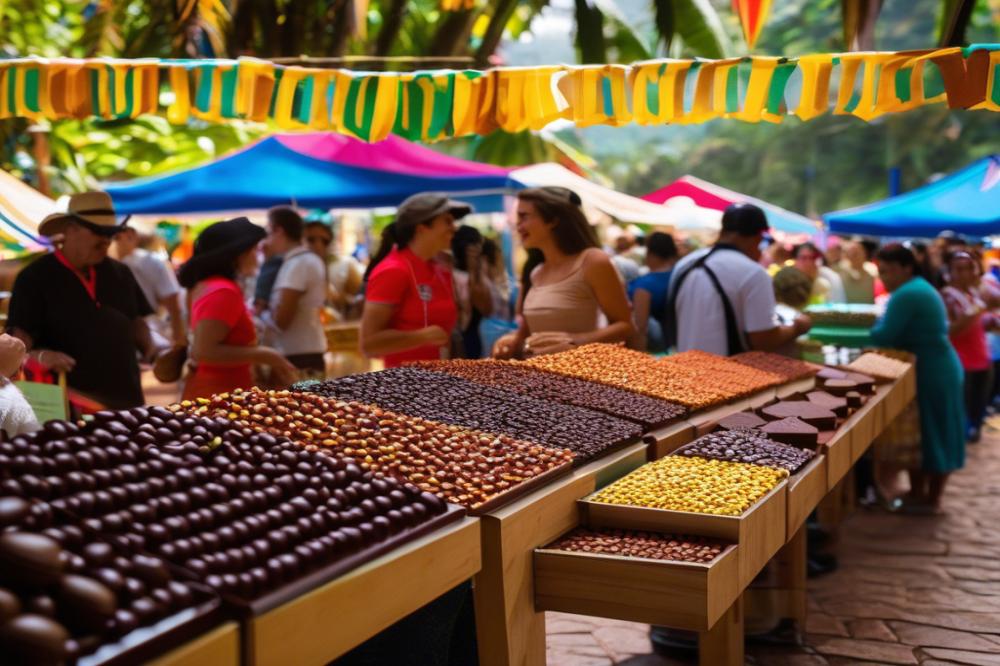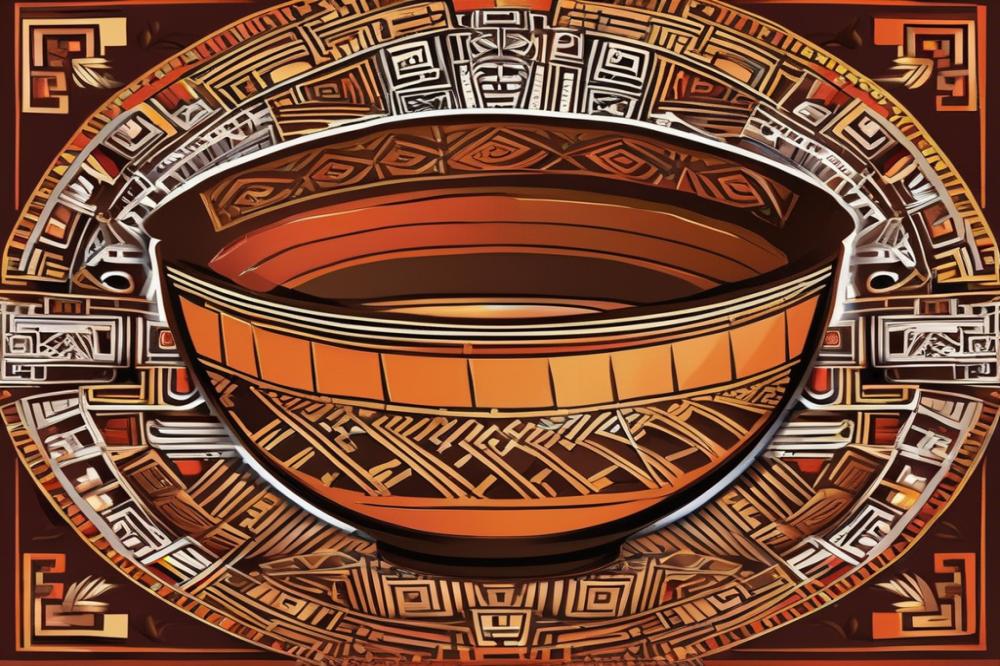Introduction
chocolate festivals hold a vital place in the world of cultural tourism. These celebrations bring people together to enjoy the rich flavors of chocolate while also exploring the traditions tied to it. The joy of chocolate connects locals and visitors, creating memorable experiences that highlight local heritage. Often, these festivals include a variety of activities such as tastings, workshops, and exhibitions. Attendees get the chance to learn about artisanal chocolate, the significance of cacao, and the culture behind these delicious treats.
In Honduras, one such event stands out—the Honduran Chocolate Festival. This festival is not just a gathering; it represents a deep connection to the land and its resources. For many locals, it serves as an opportunity to showcase their unique foods and traditions. Visitors can engage in cultural experiences that highlight local cuisine and sustainable farming practices. Community events encourage participation from everyone, enriching the experience for those who join. Each bite of chocolate offers a taste of the country’s history and passion for cacao. Enjoying these flavors is about more than just culinary tourism; it’s a journey into the heart of Cocoa Culture.
Honduran Chocolate Festival

The Honduran Chocolate Festival takes place every year in La Ceiba, a lively coastal city. Usually held in the month of September, this festival attracts visitors from around the globe. It celebrates the rich heritage of cacao, a plant that has played an important role in the culture of Honduras for centuries.
History of Cacao in Honduras
Cacao cultivation in Honduras dates back to ancient times. The Maya and Lenca civilizations cherished this valuable crop. They recognized cacao not just for its taste but also for its cultural significance. It was often used in rituals and as a form of currency. This deep-rooted connection to cacao still influences local traditions today.
Cocoa Cultivation and Sustainable Farming Practices
In recent years, farmers have adopted sustainable farming practices in the region. These methods help protect the environment while producing high-quality cocoa. Organic farming is becoming popular among local growers. The emphasis is on maintaining biodiversity and reducing chemical use. This approach benefits both the land and the community.
Artisanal chocolate makers showcase their products at the festival. Visitors can taste a variety of chocolates made from locally sourced cacao. Many booths offer samples of traditional dishes that highlight local cuisine. Culinary tourism thrives in this vibrant setting, where history meets flavor.
Community events during the festival provide opportunities for learning and connection. Workshops may teach attendees about the cacao-making process. Often, experts share insights about the importance of sustainable practices. Such experiences deepen the appreciation for the rich flavors and heritage of Honduran chocolate.
Cultural Experiences at the Festival

The Honduran Chocolate Festival brings together a wonderful mix of local cuisine and cultural experiences. Visitors have the chance to sample dishes made from fresh ingredients that showcase the flavors of Honduras. Street vendors offer everything from spicy tamales to sweet plantains, all perfectly complemented by rich cocoa treats.
Artisans showcase their handcrafted chocolates, made with love and skill. Each bite tells a story of tradition and passion. Local chocolatiers are eager to share secrets of their craft with festival-goers. The artistry involved in creating artisanal chocolate is truly captivating.
Workshops and Demonstrations
Workshops provide hands-on experiences that highlight traditional chocolate-making techniques. Attendees can learn about the journey of cacao from bean to bar. Demonstrations reveal how to grind cacao and make creamy beverages that have been enjoyed for generations. These interactive events offer a fantastic opportunity to gain practical knowledge while connecting with the culture of the community.
Community Involvement
Involvement of the local community is vital to the festival’s success. From organizing events to displaying crafts, everyone plays a role. Cultural events unfold throughout the festival, showcasing folklore, music, and dance that celebrate Honduran heritage. Families gather to enjoy lively performances, creating an atmosphere filled with joy and connection.
Culinary tourism thrives in this vibrant setting. Many people come to indulge in the rich tapestry of flavors and experiences. Sustainable farming practices are emphasized, highlighting the importance of preserving the environment while enjoying chocolate. The festival truly reflects the spirit of Honduras, bringing together delicious food, community pride, and a celebration of cacao culture.
Artisanal Chocolate and Culinary Tourism

The rise of artisanal chocolate in Honduras has caught the attention of food lovers and festival-goers alike. In recent years, a surge of local chocolatiers has emerged, each offering delightful products that showcase the rich flavors of cacao. Visitors to the Honduran Chocolate Festival can meet these creators, learn about their methods, and sample their delicious treats. Many of these artisans pride themselves on using sustainable farming practices, which not only supports their craft but also helps local communities thrive.
Several chocolatiers have become well known for their special recipes. Some incorporate traditional local ingredients, highlighting the region’s culture and flavors. One chocolatier might mix dark chocolate with spices like cinnamon and cardamom, giving it a twist that reflects Honduras’s culinary diversity. Another may create truffles infused with tropical fruits, marrying chocolate’s richness with fresh, vibrant tastes. Each product tells a story, connecting people to the land and its history.
Culinary tourism shines a light on the intersection of food and travel, encouraging exploration of local cuisine. Festivals centered on chocolate offer more than just tasting opportunities; they provide a platform for tourists to engage with the culture of Honduras. People seeking authentic experiences are drawn to these community events, eager to learn the significance of cacao in Honduran heritage. This interest not only benefits visitors but also stimulates local economies.
As tourism grows, so does the demand for unique culinary experiences. Some visitors come to participate in workshops, where they can try their hand at making chocolate or discover the history behind this beloved treat. Local businesses often thrive during these times, as tourists venture to nearby restaurants and markets to savor more of Honduras’s offerings. Culinary tourism showcases how food can connect people and cultures while supporting the community.
Sustainability and Community Engagement
Sustainable farming practices are crucial for the future of cacao production in Honduras. These methods help protect the environment while improving the quality of the beans. Farmers can maintain healthy soils and ecosystems by avoiding harmful chemicals. Healthy cacao plants yield better chocolate, which is vital for both local culture and economic stability.
The festival plays a significant role in raising awareness about environmental issues. Through workshops and discussions, attendees learn about sustainable farming techniques. Promoting these ideas helps ensure that the legacy of artisanal chocolate continues. People from all walks of life gather to celebrate not just the taste of chocolate but also the story behind it.
Community engagement is a central theme of the festival. Local farmers and businesses receive support from both attendees and organizers. Visitors can taste local cuisine, made from fresh ingredients supplied by area farmers. This undeniably creates a positive cycle—when guests enjoy the food and chocolate, they encourage growth within the community.
Culinary tourism thrives during these events. People come not only for the chocolate but to experience the rich culture of Honduras. Engaging with local artisans gives attendees a deeper connection to the region. Festivals provide a platform for artisans to showcase their skills, which helps build the local economy.
Everyone benefits when communities come together. Local entrepreneurs gain visibility, and residents can showcase their hard work. Many leave the festival with a newfound appreciation for where their chocolate comes from. Taking part in these community events fosters connections that last long after the festival ends.
Experiencing the Festival: Tips for Visitors
Travelers heading to the chocolate festival should prepare for an unforgettable experience. Consider arriving early. This will allow you to enjoy all the festivities without feeling rushed. Taking public transportation can also be a great way to immerse yourself in local culture. Buses often provide a glimpse into daily life in Honduras.
Food is a big part of the celebration. Sampling local cuisine is a must. Try traditional dishes like tamales or pupusas. Food stands are scattered throughout the festival grounds, offering a variety of treats. Don’t skip the chance to pair your chocolate taste tests with regional specialties. This combination enhances the culinary journey.
When exploring outside the festival, make time for nearby attractions. The lush landscapes surrounding the area are stunning. Visiting a local cacao farm might be worth your while. Many farms offer tours that show how cacao beans turn into chocolate. These tours often emphasize sustainable farming practices, which are important for the community and environment.
Artisanal chocolate will catch your eye. It is often handmade using traditional techniques. For the best selections, look for vendors that prioritize quality and sustainability. Engage in conversations with the chocolatiers; they love sharing their stories behind each creation. This interaction can lead to discovering hidden gems in chocolate-making.
Buying chocolate as a souvenir can be fun. Seek out unique flavors that you won’t find elsewhere. Packaging can be just as important; choose options that reflect local artistry. Always ask for samples to discover your personal favorites. Many vendors are more than happy to oblige.
Attending community events throughout the festival can deepen your understanding of Honduran culture. Live music and dance performances may be featured. Participating in workshops provides hands-on experiences with chocolate making. These activities are perfect for families and friends to enjoy together.
Lastly, keep an open mind while experiencing this vibrant celebration. Engage with locals and embrace all that the festival offers. A willingness to explore will lead to unexpected delights. Each moment holds potential for new discoveries in the world of cacao.
Wrapping Up the Cocoa Journey
Experiences at the festival celebrate more than just the delicious flavors of chocolate. Attendees enjoy the rich heritage of Honduras, connecting with local artisans and farmers who bring cacao to life. Each booth and activity provides insight into the care that goes into producing this sought-after treat. Cooking demonstrations, tastings, and hands-on workshops immerse visitors in the world of chocolate-making.
This event plays a crucial role in preserving cultural traditions. It highlights the artistry and stories behind local recipes and customs associated with cacao. Many families have passed down their knowledge through generations. By attending, guests can appreciate the significant effort and love that goes into these creations.
Moreover, there is a strong emphasis on sustainability. Farmers showcase eco-friendly practices, which promote the health of the land as well as the community. Supporting such initiatives helps ensure future generations can enjoy both the chocolate and the beautiful landscape of Honduras.
In essence, festivals like this one strengthen connections between people, their culture, and nature. An exploration of flavors becomes a journey through time and tradition. Visitors leave not only with delectable treats but also with a richer understanding of where their chocolate comes from. Such events deserve appreciation for their role in fostering local pride and showcasing the delights of the cacao world.



